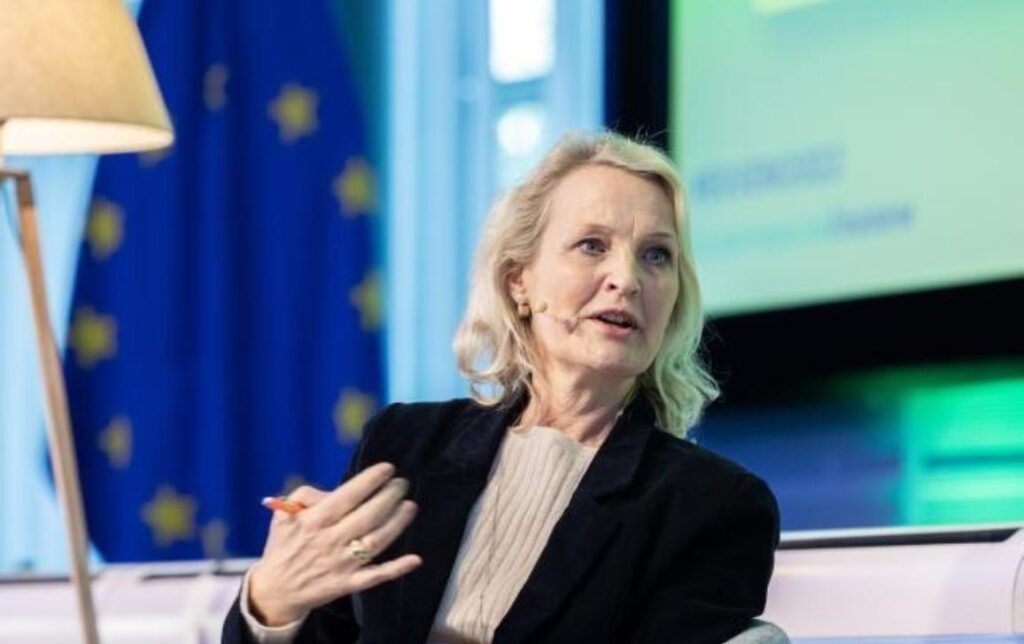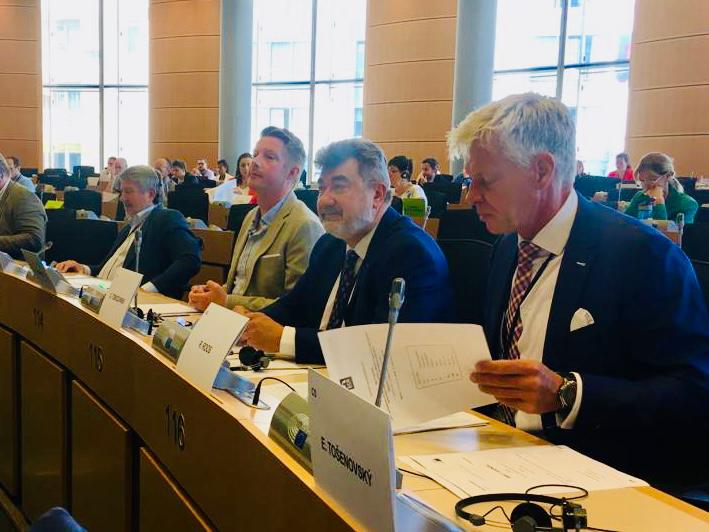
“Fit for 55”, the Green Deal and RePowerEU are still the main way of the European Commission to solve energy problems. The heating season will start soon, the Germans are opening more and more lignite mines, and the European Commission is trying to force the Member States to undertake a costly green transformation in the situation of a self-generated crisis. During the meeting of the Committee on Industry, Research and Energy (ITRE), the Director General of ENER in the EC, Ditte Juul Jørgensen, answered questions from MEPs.
“We have a decisive perspective on the shape of the energy market” – Jørgensen said, admitting that “the energy crisis exists in a different form than last year, but there are still a number of important risks on the energy market and we must demonstrate both preparation and awareness of where we are”.
Referring to the stage at which the EU is in the field of energy, Jørgensen pointed to the prepared legislative acts. “When it comes to preparing for the winter period, we are in a much better position than in 2022 thanks to the work done across the EU with the support of the EP, national governments as well as the Commission and the Council, as well as stakeholders across the energy sector. Our RePowerEU plan has already delivered concrete results in terms of replacing Russian gas with new energies” – she said.
“We are still dependent on liquefied gas from Russia. There are some concerns, the growth in this respect is minimal, but it is necessary at the moment. We need to build appropriate pipelines. We are currently discussing the continuation of obtaining energy from Russia” – she reported.
“Another aspect of the crisis is very high energy prices, especially in 2022” – she recalled, admitting that last year’s prices – almost EUR 300 per 1 MWh – had very negative effects on the economy. She pointed to a reduction in this price, but also to the instability of prices on the market. “The market is still volatile and we need to take that into account” – she noted. What is her recipe for this? “We should think about critical raw materials, green technologies, and our competitiveness” – she argued. “First of all, we have ‘Fit for 55’, we have the Green Deal, but first of all we have the electricity market and it must remain competitive to ensure affordable energy” – she enumerated. The problem is that she provided absolutely no solution for maintaining competitiveness while introducing green solutions.
Referring to the gas and hydrogen decarbonization package, she said that “here too, a certain framework is needed so that this framework can stabilize the market, so that this market can be built”. “Gas decarbonization and the hydrogen package are the lessons we have drawn from the crisis” – she said, declaring the need to strengthen the EC’s actions.
MEP Grzegorz Tobiszowski asked D.J Jørgensen several important questions, namely: How does the European Commission intend to guarantee the security of raw material supplies? Which third countries will be credible for us when it comes to contracts for critical raw materials? How does he assess the potential of critical raw materials and rare earths in the EU? Is there an alternate scenario for the European energy system, if supply chains are interrupted and renewable power cannot be built? How do we want to influence the prices of these raw materials? The ECR MEP recalled that after the decision to abandon diesel, the price of lithium, which is needed to build batteries, increased by 1,500%. He then asked whether, in such a case, it is planned to take joint action at the EU level or whether the Member States will have to act individually?
The representative of the European Commission, limiting herself to clichéd slogans about the need to find reliable partners and prevent the breakage of supply chains, was unable to answer these questions in a substantive and exhaustive manner. It turns out, therefore, that the EC has absolutely no contingency scenarios in the event of any crisis in the supply of rare earth elements. There are also no specific solutions in the event of price collusion or other pathological market behavior. Jørgensen argued that it is necessary to extract lithium in the EU or look for reliable contractors, but the problem is that the deposits located in Portugal are not enough to meet the needs of the automotive market in the EU after the introduction of the green transformation. The resources in Africa are slightly larger, but there small children work in terrible, inhumane conditions. Interestingly, this also does not cause any reflection among EU officials.

Grzegorz Tobiszowski also pointed out that in some EU countries we are seeing a return to conventional energy and lignite mines are being opened. Jørgensen did not refer to this at all. It is a pity, because in Poland, lying on huge resources of coal, the European Commission imposed decarbonisation, while Germany still remains the largest consumer of coal and launches new mines. They are therefore equal and more equal in the EU, and justice can only be dreamed of.
It is worth adding here that the impact assessment of green solutions on the economy in crisis has not yet been submitted. There is still no talk on the EU forum about abandoning the speculative ETS mechanism, even though last year showed that it destabilizes the energy market, leading to an avalanche of price increases, which may also happen this year. No Community purchases will help if the mechanism involves regular draining of citizens’ pockets in favor of large corporations that are players on the market of CO2 emissions trading. It is clear that the EC is generating a crisis so that speculators can profit from it, and interestingly, there is no control institution that would stop this lawlessness. Instead of examining the compliance of the ETS mechanism with the treaties and ordering an expert opinion on whether there was corruption during its adoption, the CJEU is prosecuting Poland for the alleged lack of the rule of law.
We are facing a huge crisis for which, as results from Jørgensen speech, the EU is absolutely unprepared, stuck in the mists of green madness and underestimating the importance of the threats that await it.
Anna Wiejak
